Angels & Demons Read online
Page 39
“Yes?”
“Ms. Baudeloque? This is Director Kohler. Contact my pilot. My jet is to be ready in five minutes.”
100
Robert Langdon had no idea where he was or how long he had been unconscious when he opened his eyes and found himself staring up at the underside of a baroque, frescoed cupola. Smoke drifted overhead. Something was covering his mouth. An oxygen mask. He pulled it off. There was a terrible smell in the room—like burning flesh.
Langdon winced at the pounding in his head. He tried to sit up. A man in white was kneeling beside him.
“Riposati!” the man said, easing Langdon onto his back again. “Sono il paramédico.”
Langdon succumbed, his head spiraling like the smoke overhead. What the hell happened? Wispy feelings of panic sifted through his mind.
“Sórcio salvatore,” the paramedic said. “Mouse… savior.”
Langdon felt even more lost. Mouse savior?
The man motioned to the Mickey Mouse watch on Langdon’s wrist. Langdon’s thoughts began to clear. He remembered setting the alarm. As he stared absently at the watch face, Langdon also noted the hour. 10:28 P.M.
He sat bolt upright.
Then, it all came back.
Langdon stood near the main altar with the fire chief and a few of his men. They had been rattling him with questions. Langdon wasn’t listening. He had questions of his own. His whole body ached, but he knew he needed to act immediately.
A pompiero approached Langdon across the church. “I checked again, sir. The only bodies we found are Cardinal Guidera and the Swiss Guard commander. There’s no sign of a woman here.”
“Grazie,” Langdon said, unsure whether he was relieved or horrified. He knew he had seen Vittoria unconscious on the floor. Now she was gone. The only explanation he came up with was not a comforting one. The killer had not been subtle on the phone. A woman of spirit. I am aroused. Perhaps before this night is over, I will find you. And when I do…”
Langdon looked around. “Where is the Swiss Guard?”
“Still no contact. Vatican lines are jammed.”
Langdon felt overwhelmed and alone. Olivetti was dead. The cardinal was dead. Vittoria was missing. A half hour of his life had disappeared in a blink.
Outside, Langdon could hear the press swarming. He suspected footage of the third cardinal’s horrific death would no doubt air soon, if it hadn’t already. Langdon hoped the camerlegno had long since assumed the worst and taken action. Evacuate the damn Vatican! Enough games! We lose!
Langdon suddenly realized that all of the catalysts that had been driving him—helping to save Vatican City, rescuing the four cardinals, coming face to face with the brotherhood he had studied for years—all of these things had evaporated from his mind. The war was lost. A new compulsion had ignited within him. It was simple. Stark. Primal.
Find Vittoria.
He felt an unexpected emptiness inside. Langdon had often heard that intense situations could unite two people in ways that decades together often did not. He now believed it. In Vittoria’s absence he felt something he had not felt in years. Loneliness. The pain gave him strength.
Pushing all else from his mind, Langdon mustered his concentration. He prayed that the Hassassin would take care of business before pleasure. Otherwise, Langdon knew he was already too late. No, he told himself, you have time. Vittoria’s captor still had work to do. He had to surface one last time before disappearing forever.
The last altar of science, Langdon thought. The killer had one final task. Earth. Air. Fire. Water.
He looked at his watch. Thirty minutes. Langdon moved past the firemen toward Bernini’s Ecstasy of St. Teresa. This time, as he stared at Bernini’s marker, Langdon had no doubt what he was looking for.
Let angels guide you on your lofty quest…
Directly over the recumbent saint, against a backdrop of gilded flame, hovered Bernini’s angel. The angel’s hand clutched a pointed spear of fire. Langdon’s eyes followed the direction of the shaft, arching toward the right side of the church. His eyes hit the wall. He scanned the spot where the spear was pointing. There was nothing there. Langdon knew, of course, the spear was pointing far beyond the wall, into the night, somewhere across Rome.
“What direction is that?” Langdon asked, turning and addressing the chief with a newfound determination.
“Direction?” The chief glanced where Langdon was pointing. He sounded confused. “I don’t know… west, I think.”
“What churches are in that direction?”
The chief’s puzzlement seemed to deepen. “Dozens. Why?”
Langdon frowned. Of course there were dozens. “I need a city map. Right away.”
The chief sent someone running out to the fire truck for a map. Langdon turned back to the statue. Earth… Air… Fire… VITTORIA.
The final marker is Water, he told himself. Bernini’s Water. It was in a church out there somewhere. A needle in a haystack. He spurred his mind through all the Bernini works he could recall. I need a tribute to Water!
Langdon flashed on Bernini’s statue of Triton–the Greek God of the sea. Then he realized it was located in the square outside this very church, in entirely the wrong direction. He forced himself to think. What figure would Bernini have carved as a glorification of water? Neptune and Apollo? Unfortunately that statue was in London’s Victoria & Albert Museum.
“Signore?” A fireman ran in with a map.
Langdon thanked him and spread it out on the altar. He immediately realized he had asked the right people; the fire department’s map of Rome was as detailed as any Langdon had ever seen. “Where are we now?”
The man pointed. “Next to Piazza Barberini.”
Langdon looked at the angel’s spear again to get his bearings. The chief had estimated correctly. According to the map, the spear was pointing west. Langdon traced a line from his current location west across the map. Almost instantly his hopes began to sink. It seemed that with every inch his finger traveled, he passed yet another building marked by a tiny black cross. Churches. The city was riddled with them. Finally, Langdon’s finger ran out of churches and trailed off into the suburbs of Rome. He exhaled and stepped back from the map. Damn.
Surveying the whole of Rome, Langdon’s eyes touched down on the three churches where the first three cardinals had been killed. The Chigi Chapel… St. Peter’s… here…
Seeing them all laid out before him now, Langdon noted an oddity in their locations. Somehow he had imagined the churches would be scattered randomly across Rome. But they most definitely were not. Improbably, the three churches seemed to be separated systematically, in an enormous city-wide triangle. Langdon double-checked. He was not imagining things. “Penna,” he said suddenly, without looking up.
Someone handed him a ballpoint pen.
Langdon circled the three churches. His pulse quickened. He triple-checked his markings. A symmetrical triangle!
Langdon’s first thought was for the Great Seal on the one-dollar bill—the triangle containing the all-seeing eye. But it didn’t make sense. He had marked only three points. There were supposed to be four in all.
So where the hell is Water? Langdon knew that anywhere he placed the fourth point, the triangle would be destroyed. The only option to retain the symmetry was to place the fourth marker inside the triangle, at the center. He looked at the spot on the map. Nothing. The idea bothered him anyway. The four elements of science were considered equal. Water was not special; Water would not be at the center of the others.
Still, his instinct told him the systematic arrangement could not possibly be accidental. I’m not yet seeing the whole picture. There was only one alternative. The four points did not make a triangle; they made some other shape.
Langdon looked at the map. A square, perhaps? Although a square made no symbolic sense, squares were symmetrical at least. Langdon put his finger on the map at one of the points that would turn the triangle into a square. He saw immediate
ly that a perfect square was impossible. The angles of the original triangle were oblique and created more of a distorted quadrilateral.
As he studied the other possible points around the triangle, something unexpected happened. He noticed that the line he had drawn earlier to indicate the direction of the angel’s spear passed perfectly through one of the possibilities. Stupefied, Langdon circled that point. He was now looking at four ink marks on the map, arranged in somewhat of an awkward, kitelike diamond.
He frowned. Diamonds were not an Illuminati symbol either. He paused. Then again…
For an instant Langdon flashed on the famed Illuminati Diamond. The thought, of course, was ridiculous. He dismissed it. Besides, this diamond was oblong—like a kite—hardly an example of the flawless symmetry for which the Illuminati Diamond was revered.
When he leaned in to examine where he had placed the final mark, Langdon was surprised to find that the fourth point lay dead center of Rome’s famed Piazza Navona. He knew the piazza contained a major church, but he had already traced his finger through that piazza and considered the church there. To the best of his knowledge it contained no Bernini works. The church was called Saint Agnes in Agony, named for St. Agnes, a ravishing teenage virgin banished to a life of sexual slavery for refusing to renounce her faith.
There must be something in that church! Langdon racked his brain, picturing the inside of the church. He could think of no Bernini works at all inside, much less anything to do with water. The arrangement on the map was bothering him too. A diamond. It was far too accurate to be coincidence, but it was not accurate enough to make any sense. A kite? Langdon wondered if he had chosen the wrong point. What am I missing!
The answer took another thirty seconds to hit him, but when it did, Langdon felt an exhilaration like nothing he had ever experienced in his academic career.
The Illuminati genius, it seemed, would never cease.
The shape he was looking at was not intended as a diamond at all. The four points only formed a diamond because Langdon had connected adjacent points. The Illuminati believe in opposites! Connecting opposite vertices with his pen, Langdon’s fingers were trembling. There before him on the map was a giant cruciform. It’s a cross! The four elements of science unfolded before his eyes… sprawled across Rome in an enormous, city-wide cross.
As he stared in wonder, a line of poetry rang in his mind… like an old friend with a new face.
’Cross Rome the mystic elements unfold…
’Cross Rome…
The fog began to clear. Langdon saw that the answer had been in front of him all night! The Illuminati poem had been telling him how the altars were laid out. A cross!
’Cross Rome the mystic elements unfold!
It was cunning wordplay. Langdon had originally read the word’Cross as an abbreviation of Across. He assumed it was poetic license intended to retain the meter of the poem. But it was so much more than that! Another hidden clue.
The cruciform on the map, Langdon realized, was the ultimate Illuminati duality. It was a religious symbol formed by elements of science. Galileo’s path of Illumination was a tribute to both science and God!
The rest of the puzzle fell into place almost immediately.
Piazza Navona.
Dead center of Piazza Navona, outside the church of St. Agnes in Agony, Bernini had forged one of his most celebrated sculptures. Everyone who came to Rome went to see it.
The Fountain of the Four Rivers!
A flawless tribute to water, Bernini’s Fountain of the Four Rivers glorified the four major rivers of the Old World—The Nile, Ganges, Danube, and Rio Plata.
Water, Langdon thought. The final marker. It was perfect.
And even more perfect, Langdon realized, the cherry on the cake, was that high atop Bernini’s fountain stood a towering obelisk.
Leaving confused firemen in his wake, Langdon ran across the church in the direction of Olivetti’s lifeless body.
10:31 P.M., he thought. Plenty of time. It was the first instant all day that Langdon felt ahead of the game.
Kneeling beside Olivetti, out of sight behind some pews, Langdon discreetly took possession of the commander’s semiautomatic and walkie-talkie. Langdon knew he would call for help, but this was not the place to do it. The final altar of science needed to remain a secret for now. The media and fire department racing with sirens blaring to Piazza Navona would be no help at all.
Without a word, Langdon slipped out the door and skirted the press, who were now entering the church in droves. He crossed Piazza Barberini. In the shadows he turned on the walkie-talkie. He tried to hail Vatican City but heard nothing but static. He was either out of range or the transmitter needed some kind of authorization code. Langdon adjusted the complex dials and buttons to no avail. Abruptly, he realized his plan to get help was not going to work. He spun, looking for a pay phone. None. Vatican circuits were jammed anyway.
He was alone.
Feeling his initial surge of confidence decay, Langdon stood a moment and took stock of his pitiful state—covered in bone dust, cut, deliriously exhausted, and hungry.
Langdon glanced back at the church. Smoke spiraled over the cupola, lit by the media lights and fire trucks. He wondered if he should go back and get help. Instinct warned him however that extra help, especially untrained help, would be nothing but a liability. If the Hassassin sees us coming… He thought of Vittoria and knew this would be his final chance to face her captor.
Piazza Navona, he thought, knowing he could get there in plenty of time and stake it out. He scanned the area for a taxi, but the streets were almost entirely deserted. Even the taxi drivers, it seemed, had dropped everything to find a television. Piazza Navona was only about a mile away, but Langdon had no intention of wasting precious energy on foot. He glanced back at the church, wondering if he could borrow a vehicle from someone.
A fire truck? A press van? Be serious.
Sensing options and minutes slipping away, Langdon made his decision. Pulling the gun from his pocket, he committed an act so out of character that he suspected his soul must now be possessed. Running over to a lone Citroën sedan idling at a stoplight, Langdon pointed the weapon through the driver’s open window. “Fuori!” he yelled.
The trembling man got out.
Langdon jumped behind the wheel and hit the gas.
101
Gunther Glick sat on a bench in a holding tank inside the office of the Swiss Guard. He prayed to every god he could think of. Please let this NOT be a dream. It had been the scoop of his life. The scoop of anyone’s life. Every reporter on earth wished he were Glick right now. You are awake, he told himself. And you are a star. Dan Rather is crying right now.
Macri was beside him, looking a little bit stunned. Glick didn’t blame her. In addition to exclusively broadcasting the camerlegno’s address, she and Glick had provided the world with gruesome photos of the cardinals and of the Pope—that tongue!—as well as a live video feed of the antimatter canister counting down. Incredible!
Of course, all of that had all been at the camerlegno’s behest, so that was not the reason Glick and Macri were now locked in a Swiss Guard holding tank. It had been Glick’s daring addendum to their coverage that the guards had not appreciated. Glick knew the conversation on which he had just reported was not intended for his ears, but this was his moment in the sun. Another Glick scoop!
“The 11th Hour Samaritan?” Macri groaned on the bench beside him, clearly unimpressed.
Glick smiled. “Brilliant, wasn’t it?”
“Brilliantly dumb.”
She’s just jealous, Glick knew. Shortly after the camerlegno’s address, Glick had again, by chance, been in the right place at the right time. He’d overheard Rocher giving new orders to his men. Apparently Rocher had received a phone call from a mysterious individual who Rocher claimed had critical information regarding the current crisis. Rocher was talking as if this man could help them and was advising his guards to prepare fo
r the guest’s arrival.
Although the information was clearly private, Glick had acted as any dedicated reporter would—without honor. He’d found a dark corner, ordered Macri to fire up her remote camera, and he’d reported the news.
“Shocking new developments in God’s city,” he had announced, squinting his eyes for added intensity. Then he’d gone on to say that a mystery guest was coming to Vatican City to save the day. The 11th Hour Samaritan, Glick had called him—a perfect name for the faceless man appearing at the last moment to do a good deed. The other networks had picked up the catchy sound bite, and Glick was yet again immortalized.
I’m brilliant, he mused. Peter Jennings just jumped off a bridge.
Of course Glick had not stopped there. While he had the world’s attention, he had thrown in a little of his own conspiracy theory for good measure.

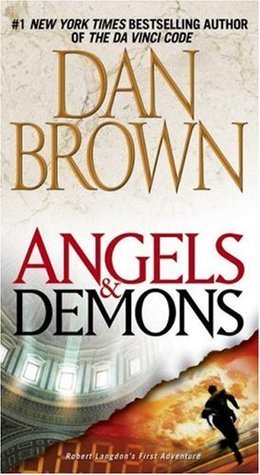 Angels & Demons
Angels & Demons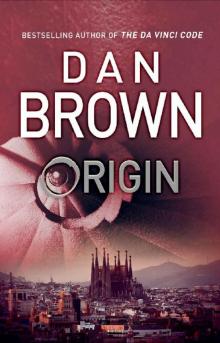 Origin
Origin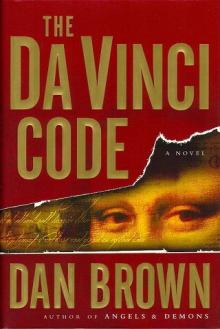 The Da Vinci Code
The Da Vinci Code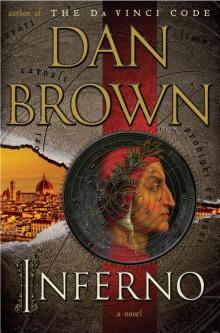 Inferno
Inferno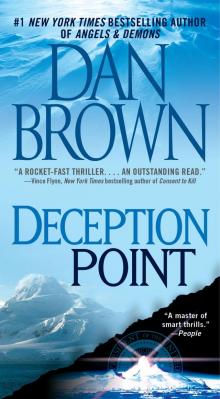 Deception Point
Deception Point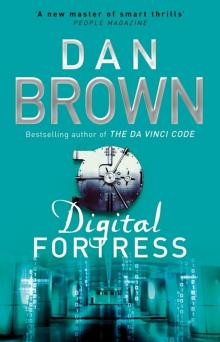 Digital Fortress
Digital Fortress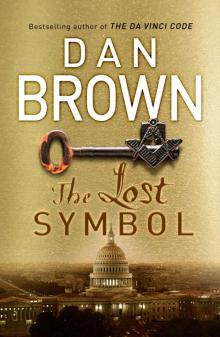 The Lost Symbol
The Lost Symbol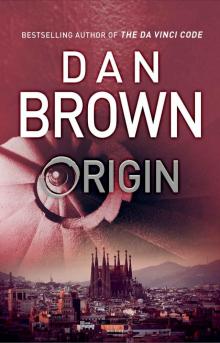 Origin: (Robert Langdon Book 5)
Origin: (Robert Langdon Book 5)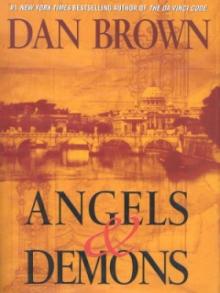 Angles & Demons
Angles & Demons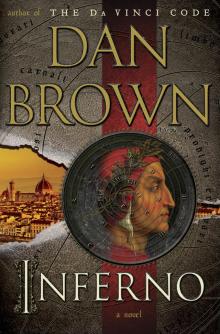 Inferno: A Novel
Inferno: A Novel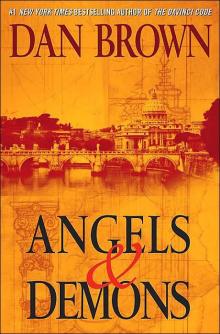 Angels & Demons rl-1
Angels & Demons rl-1 The Great Expectations School
The Great Expectations School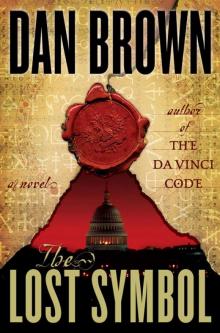 The Lost Symbol rl-3
The Lost Symbol rl-3 Angels and Demons
Angels and Demons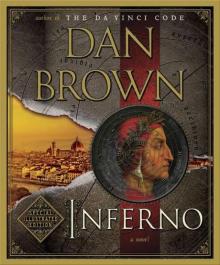 Inferno: Special Illustrated Edition: Featuring Robert Langdon
Inferno: Special Illustrated Edition: Featuring Robert Langdon